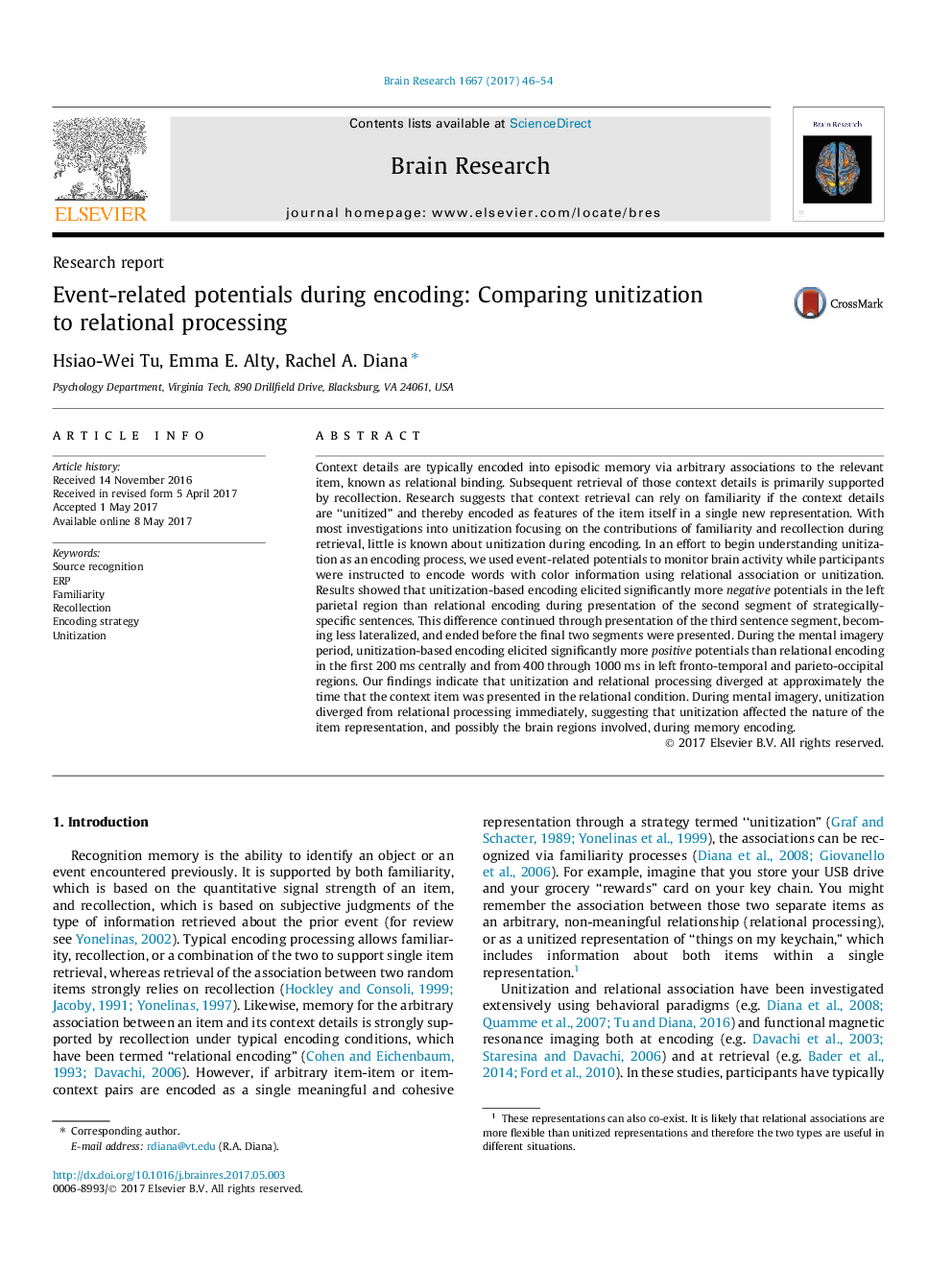ترجمه فارسی عنوان مقاله
گزارش تحقیقاتی پتانسیل های مرتبط با حوادث در طول رمزگذاری: مقایسایی از تلفیق با پردازش ارتباطی
عنوان انگلیسی
Research reportEvent-related potentials during encoding: Comparing unitization to relational processing
| کد مقاله | سال انتشار | تعداد صفحات مقاله انگلیسی |
|---|---|---|
| 161492 | 2017 | 9 صفحه PDF |
منبع

Publisher : Elsevier - Science Direct (الزویر - ساینس دایرکت)
Journal : Brain Research, Volume 1667, 15 July 2017, Pages 46-54

